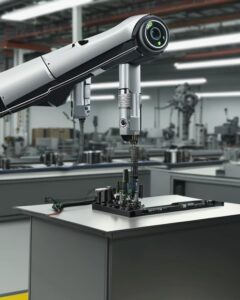The rise of Artificial Intelligence (AI) and automation is not just a passing trend; it is a catalyst for massive changes across industries and the workforce. As AI technologies continue to advance, they are revolutionizing job markets by automating mundane tasks, boosting productivity, and creating new possibilities. This wave of transformation is being felt in various sectors such as manufacturing, healthcare, and finance, where AI is leading the way towards a more efficient and innovative future.
In manufacturing, for instance, AI-powered robots are taking over repetitive and physically demanding tasks, freeing up human workers to focus on more complex and creative roles. In the healthcare sector, AI systems are playing a crucial role in improving diagnostics and creating personalized treatment plans, resulting in better patient outcomes. Similarly, financial institutions are leveraging AI for fraud detection and customer service, streamlining operations and improving efficiency.
However, as with any technological shift, this transformation also comes with its own set of challenges. As certain jobs become obsolete, there is a growing demand for new skills, particularly in the fields of AI development and data analysis. This means that workers must be prepared to adapt by upskilling and reskilling to stay relevant in this rapidly evolving landscape.
Undoubtedly, the impact of AI on job markets is a double-edged sword. On one hand, it presents exciting opportunities for growth and advancement, but on the other hand, it also brings disruptions and displacements. This calls for a proactive approach towards workforce development and policy-making to ensure that individuals and businesses can navigate this changing landscape successfully.
In conclusion, AI and automation are not just buzzwords, but rather, they are driving forces behind a profound shift in how we work and do business. By embracing this change and preparing for it, we can harness its potential to create a more innovative, efficient, and prosperous future for all.

